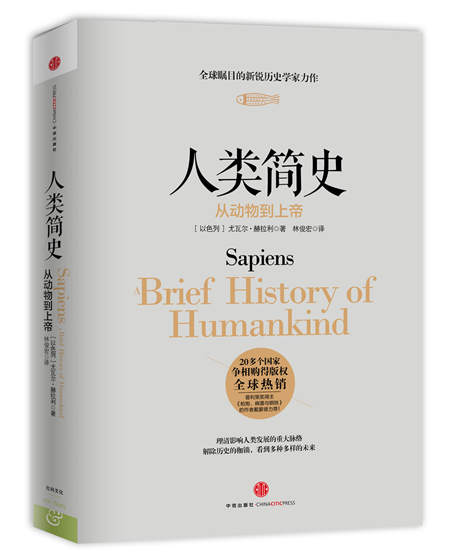 |
|
Chinese edition of Harari's best-seller is published by the China Citic Press. |
"Money is a fictional story we're told, as well as empire, religion and more," Harari says.
"We believe money, a piece of paper, can be exchanged for a real banana, but the chimpanzees won't.
"In this sense, bankers are better storytellers than the Nobel literature winners."
Wu Ningchuan from TMTPost.com even calls the book an internet Bible, which is especially enlightening to internet business and startups.
"Internet business is about the ability to create and tell new stories, and the goal of making money through selling 'happiness' to users, as Harari states in his book," Wu says.
Harari himself is a wonderful storyteller, too - from WeChat to his book's stories from ancient Chinese history.
"It is important for me to communicate well with the audience in different countries," he says.
"Examples are to make it easier for the readers to understand and they need to be familiar to the reader."
He is one of the rare and smart writers who would change seven to eight examples and offer a customized academic book to a different market.
"When I write Queen Elizabeth I as an example of powerful women to the English audience, I use the Empress Dowager at the end of the Qing Dynasty for the Chinese. Football in the English version for the UK market and basketball/baseball in the US," he adds.
Gao Yi, history professor at Peking University, says: "I'm absorbed by Harari's listing of historical events that we feel close to."
What impresses Gao most is Harari's crossover on many different subjects and realms of knowledge.